
English | 中文

Towards Responsible Raw Materials: Common Cause, Common Future
source:goldencsr date:2018-06-26 11:29:56Raw materials are the key starting point towards the development of sustainable products. Stakeholders throughout the value chain should confront problems together, share the responsibility, and create solutions together while enjoying the value brought from raw materials. Enhancing the sustainability level in the raw materials value chain is also a source for competitive advantage. Furthermore, the increased attention to circular economy adds another important dimension to the use and re-use of raw materials.
CSR Europe, the China Chamber of Commerce of Metals Minerals & Chemicals Importers & Exporters (CCCMC) and China WTO Tribune co-hosted the 2nd Global Sustainable Raw Materials Sourcing in Value Chain Roundtable on June 5, 2018, in Beijing International Hotel.
The roundtable was themed “Towards Responsible Raw Materials: Common Cause, Common Future”, and focused on sustainable development issues of global value chains and the added value of global and cross-industry partnerships. In this forum, representatives and experts from industries, enterprises and other stakeholders explored potential solutions to responsible raw materials, and made a contribution to global sustainable development.
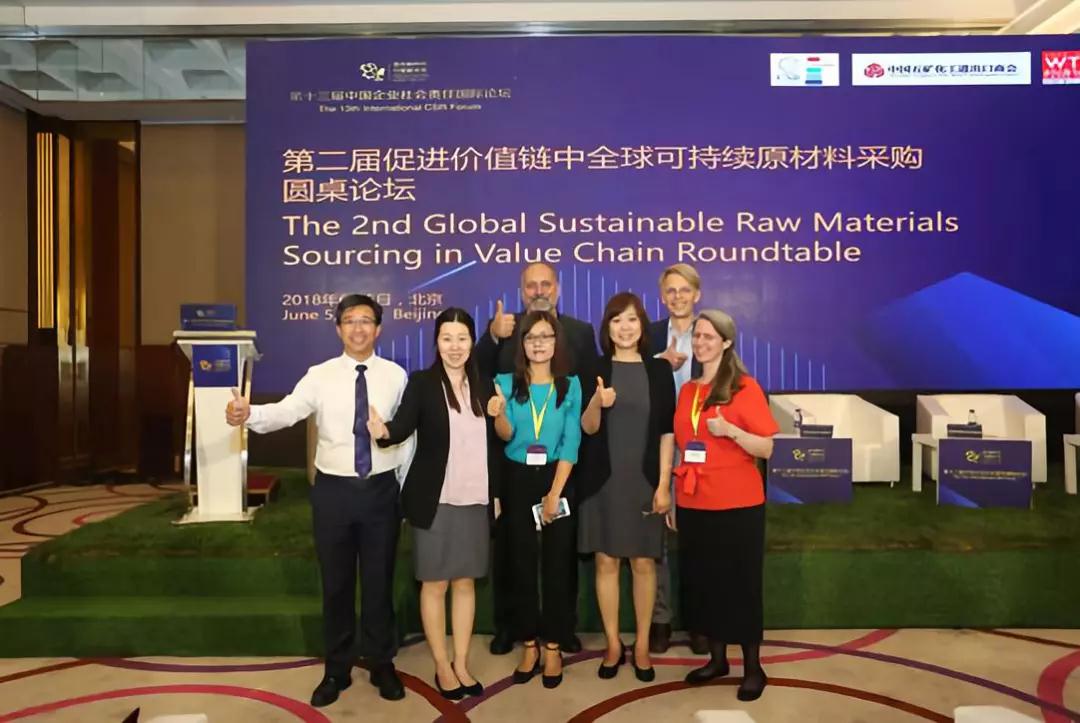
Group photo
To promote the sustainability in supply chain of raw material comprehensively
Mr. Sun Lihui, Director of Development Department, CCCMC made the opening remarks for the forum. Against the background of economic globalization, he analyzed the challenges for the enterprises from macro, medium and micro level, and stated that every enterprises shall identify the advantages and disadvantages in the international circumstances and seize the opportunities.
Mr. Sun introduced the works of CCCMC to promote the sustainability in supply chain, which includes development of three standards, launch of three initiatives and three researches in mineral, cobalt and rubber industry.
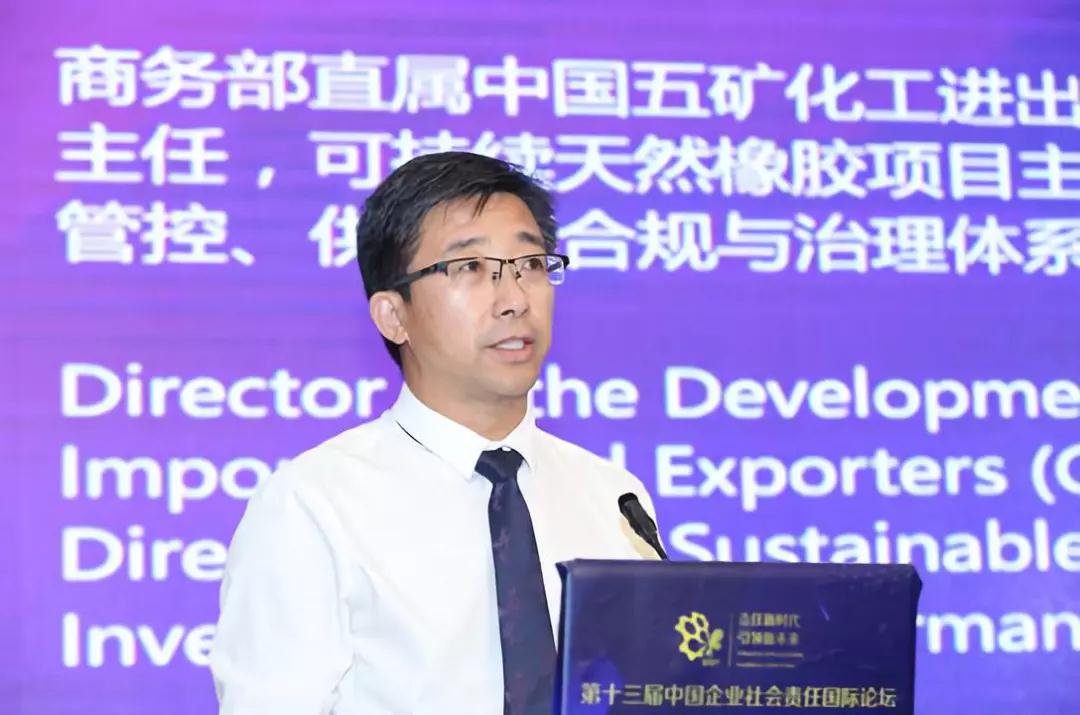
Sun Lihui, Director of Development Department, CCCMC
Cross-sector collaboration drives sustainable raw material sourcing
In the opening remarks, Mr. Stefan Crets, Executive Director of CSR Europe concluded five major risks in responsible raw material sourcing. He introduced a model applied to sustainable rubber, which was developed by CSR Europe. The three dimensions in this model includes commitment, compliance process, capacity building and leverage.
In his point of view, the collaborative and cross-sectorial efforts plays an important role in building a sustainable supply chain. The Raw Material Observatory in Drive Sustainability provides a good example for cross-sector collaboration by applying the common approach to achieve the win-win situation for different enterprises and sectors.
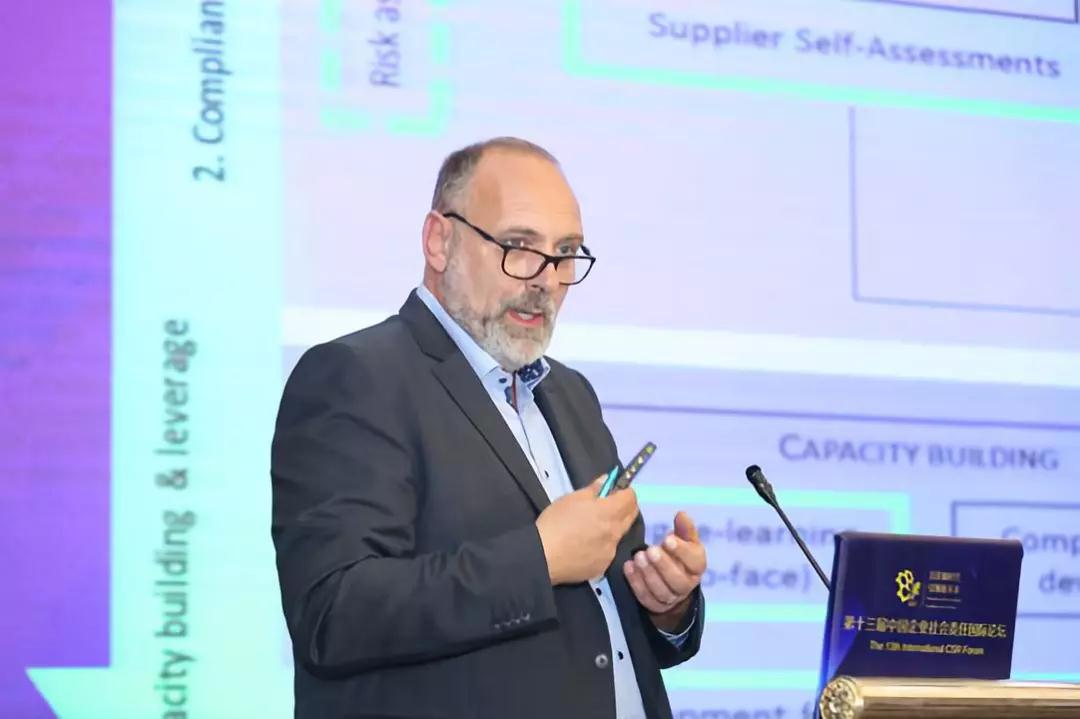
Stefan Crets, Executive Director of CSR Europe
To advocate decent work in supply chain
In the keynote speech of Ms. Huang Qun, Senior Programme Officer, International Labour Office for China and Mongolia, she thinks that the global supply chain is a double-edge sword. On the one hand, it provides opportunity for enterprise workers and participating countries. On the other hand, it also brings challenges to the sustainable and healthy development of economics and decent work. She elaborated the influence of economic development to working conditions, decent work and working hours and social benefits of the workers in supply chain.
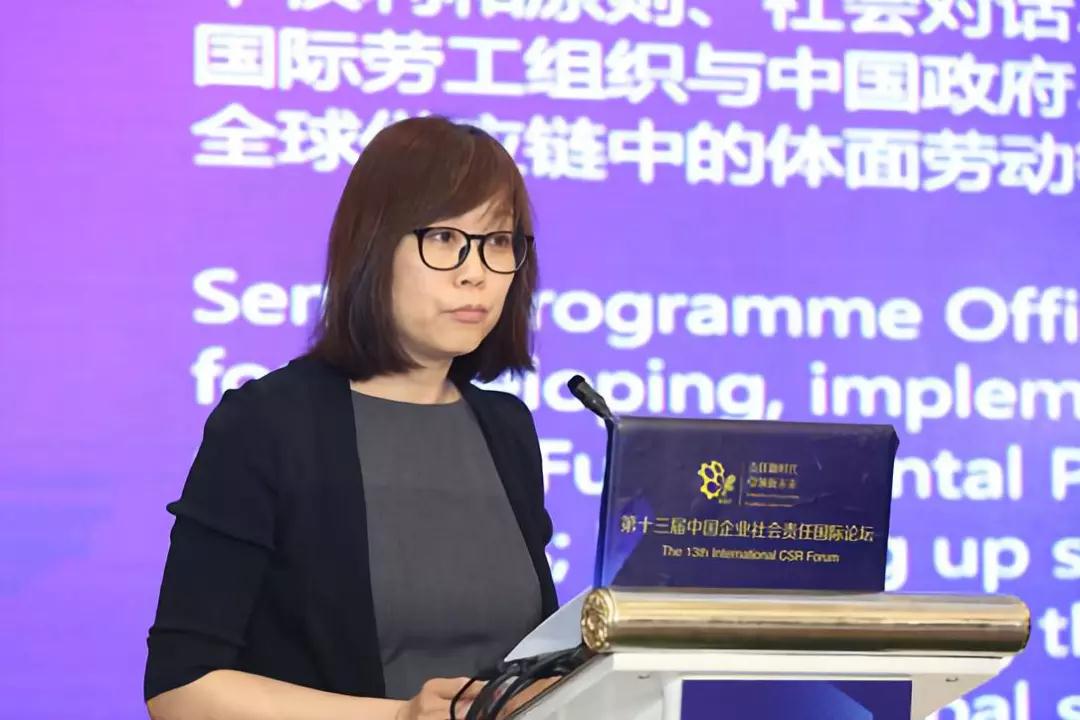
Huang Qun, Senior Programme Officer, International Labour Office for China and Mongolia
To promote green development of forest supply chain
Ms. Wang Lei, Forest Manager, WWF China Forest Practice shared the experiences of WWF in promoting green supply chain. Up to 200 million hectares of forest could be destroyed by 2030. To tackle with this challenge, WWF launched China Sustainable Paper Alliance with other partners in Sep 2015. The objective of this alliance is to increase demand and supply of certified and recycled paper products, particularly FSC certified products, and to eliminate illegal and controversial sources in the supply chain.
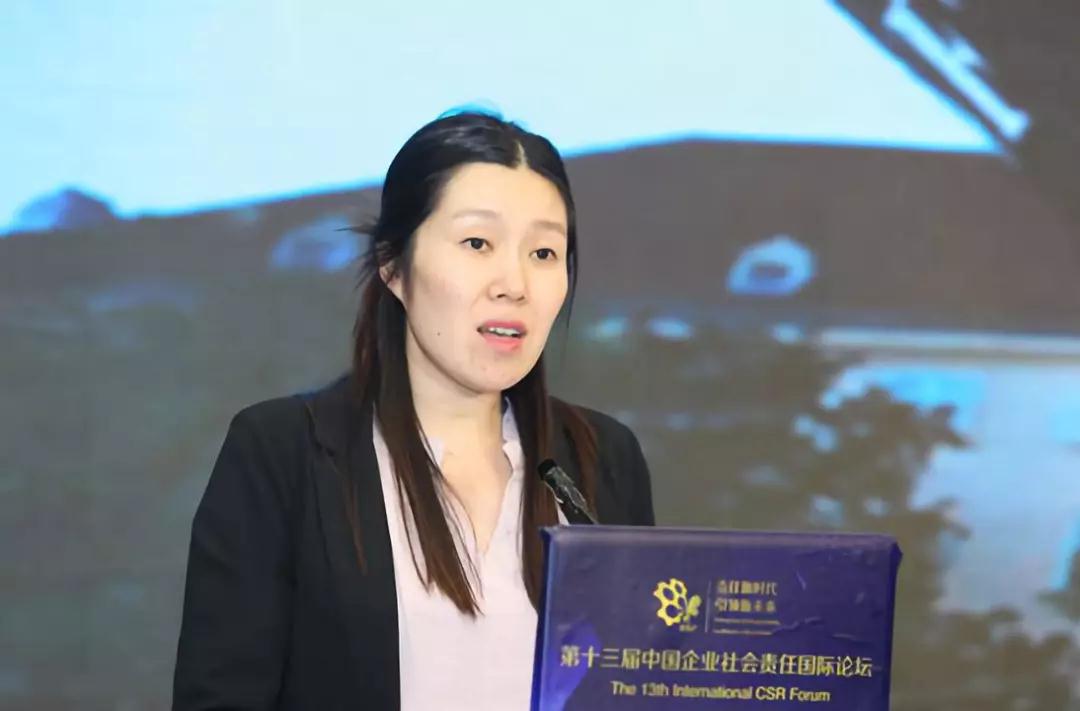
Wang Lei, Forest Manager, WWF China Forest Practice
Sustainable raw material and community engagement
Ms. Genevieve Hilton, Head of External Communications & Corporate Citizenship, Corporate Affairs Asia Pacific of BASF shared how BASF contributed to the sustainable palm olive oil by establishing collaboration platform, promoting reforms and joint cooperation with multi-stakeholders.
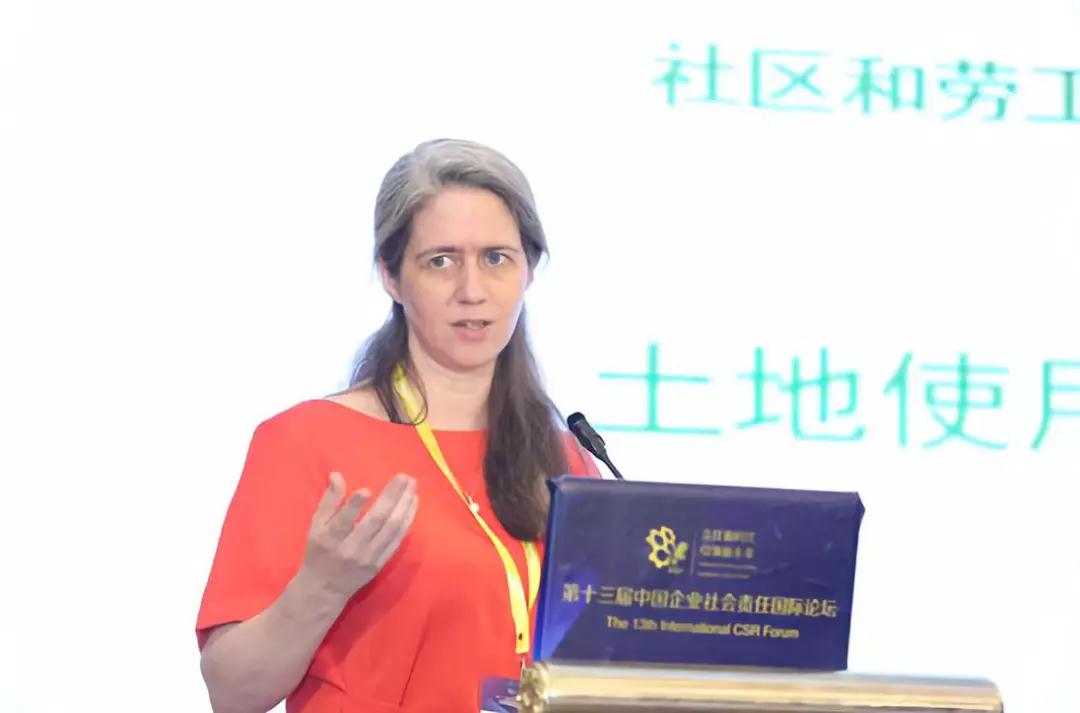
Genevieve Hilton, Head of External Communications & Corporate Citizenship, Corporate Affairs Asia Pacific, BASF
Sustainability in natural rubber purchasing
In October 2017, Pirelli launched its Sustainable Natural Rubber Policy after wide consultation among international stakeholders. Mr. Ulrich Werner Antoni, Purchasing Director of Pirelli Asia Pacific explained the targets of this policy is to promote the transparency and traceability of the whole supply chain.
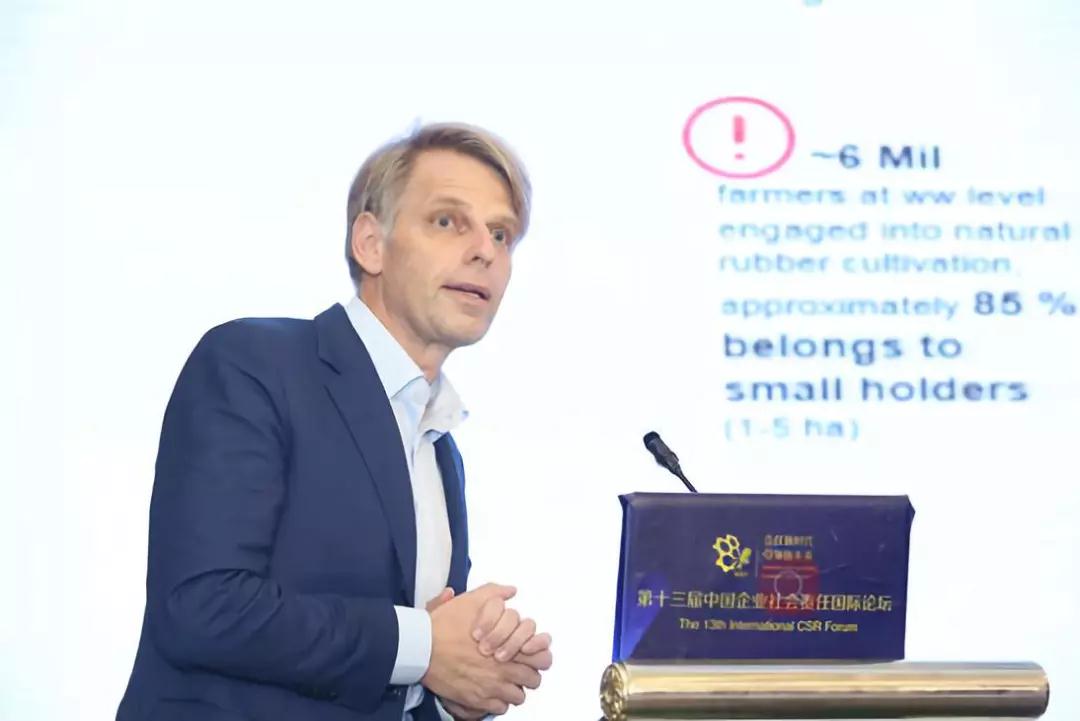
Ulrich Werner Antoni, Purchasing Director, Pirelli Asia Pacific
Sustainable supply chain management
Fuji Xerox of Shenzhen Ltd. put forward sustainable development strategy of supply chain in 2007 and has developed a comprehensive supply chain management system. Ms. Liu Meihua, Manager of CSR Department introduced the capacity building for suppliers and sector collaboration of Fuji Xerox to improve the supply chain.
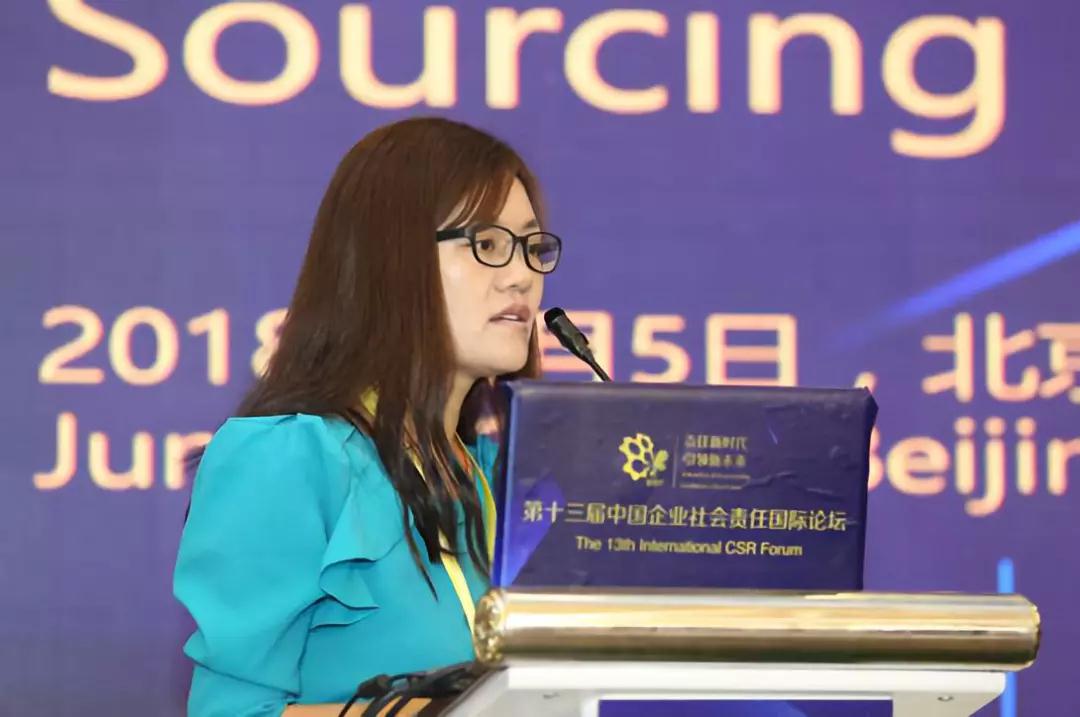
Liu Meihua, Manager, CSR Department, Fuji Xerox of Shenzhen Ltd.
Panel discussion and summary
In the discussion, the panelists shared their experiences from the perspective of labor rights, collaboration in the value chain, stakeholder engagement, sector standards etc., and provided feasible suggestions to a more sustainable supply chain, reaching many consensuses and realizing fruitful achievements.
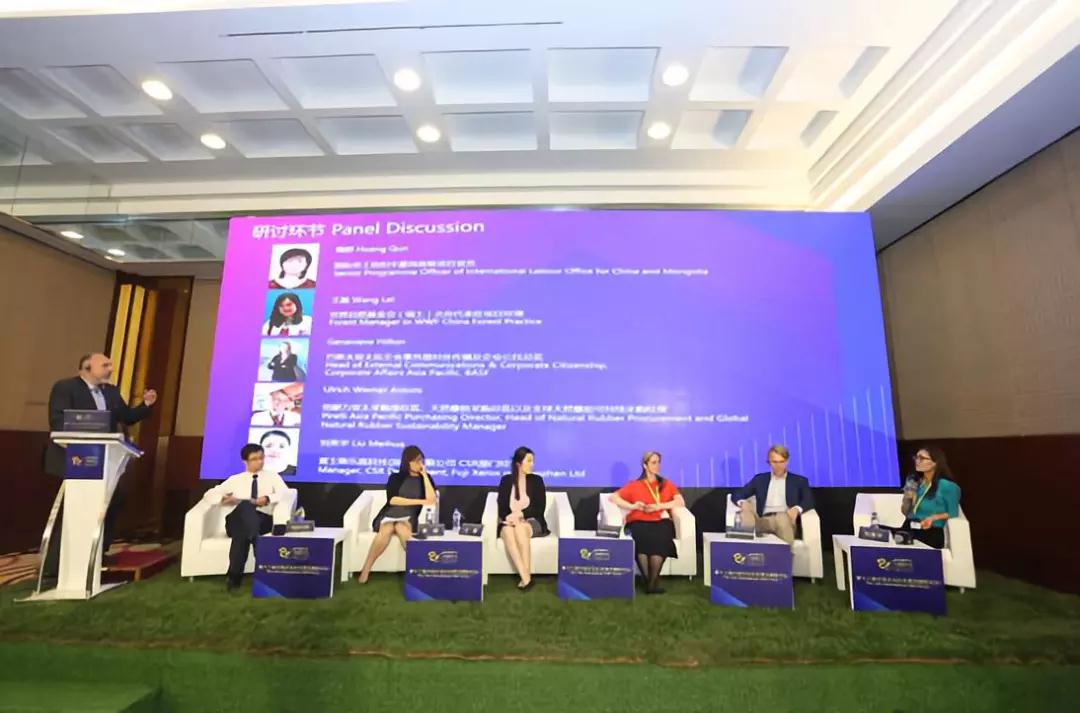
Panel discussion